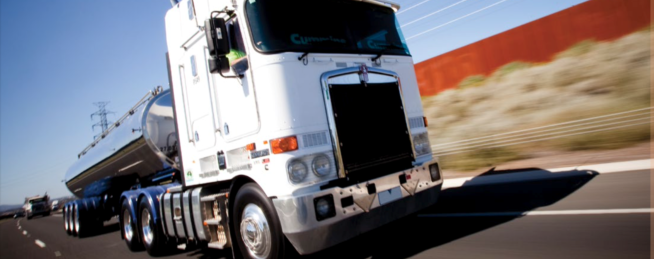They smoke, stink, squeal, shake, rattle and roll along beside us every day we are out on the bike.
They are a risk to life and limb and the health of the planet.
What are they doing there?
The heavy vehicle fleets in Australia and New Zealand are among the oldest in the OECD, according to a new Government report.
Continued operation of the oldest vehicles imposes costs on the community and the environment.
Australia and New Zealand have old truck fleets, with an average age of 15 and 18 years respectively, and trucks made before 2008 represent 56% of the national fleet.
The reason, the report says, is because "there are few regulatory, policy, or market forces to drive fleet renewal."
Although the quality of older trucks affects the community and the environment, there is no independent assessment of these effects.
And while there were many government strategies and policy actions underway in Australia and New Zealand for heavy vehicles and freight transport more broadly, most do not address the issue of aged trucks.
Pre-1996 trucks cause around $200 million in annual pollution-related health costs in Australia, the Austroads report says.
"Pre-1996 trucks operating in urban areas impose an average pollution-related health cost on the community of between 37 cents and 91 cents for every kilometre they travel in urban areas.
"Replacing these trucks could yield a net health benefit of $744–$1,441 million over seven years.
"The cost of emissions from pre-1996 trucks operating in urban areas is 4.5 times higher than in non-urban areas.
"Measures to reduce the health cost of aged trucks should focus on urban areas.
"Newer trucks (less than 5 years old) have the lowest crash frequency (casualty crashes/billion km) of all age groups."
The report says aged trucks have proliferated in Australia and New Zealand because they are cheap to operate, have no or few restrictions on where they can be used, have limited barriers to entry, and there is no secondary disposal market.
"Governments in other countries have enacted measures to reduce the operation of aged trucks in their jurisdictions.
"These comprise four types of intervention: road access restrictions, financial penalties, financial incentives, and retrofit/repower programs."
Become our friend
Find out more about Bicycle Network and support us in making it easier for people to ride bikes.


